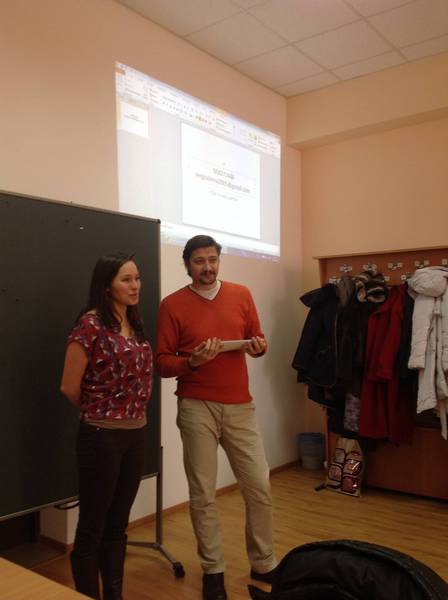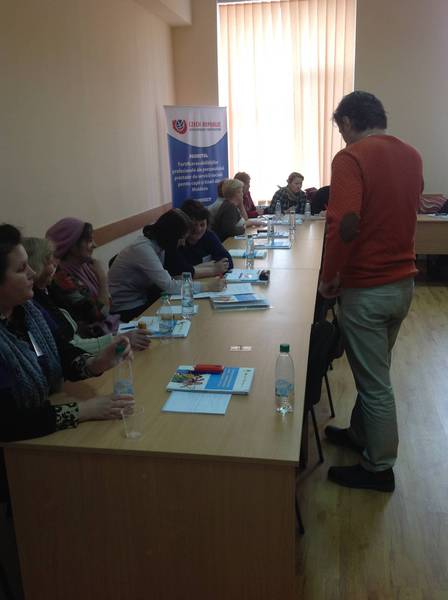Foster-parenting in Moldova is quite different than what we fiind in the Czech Republic. For example, only one person of a couple can become a foster parent. The remuneration provided to foster parents by the government remains the same no matter how many children there are in a foster family and no matter what the health condition of the children is. The foster parent is entitled to this remuneration only until the child reaches 18 years of age. Besides the remuneration, each foster parent receives a one-time subsidy to cover the child’s needs.
 In February 2016, 55 foster parents groups completed the last part of their training aimed at strengthening special knowledge and skills of foster parents. One Caritas CR worker, Magdalena Jochcová, personally took part in the training, which Caritas CR organizes through the Moldovan “Sociopolis” centre. She supervised the activities , and she got to know two training participants more closely: Anna Vataman and Veronice Musteata.
In February 2016, 55 foster parents groups completed the last part of their training aimed at strengthening special knowledge and skills of foster parents. One Caritas CR worker, Magdalena Jochcová, personally took part in the training, which Caritas CR organizes through the Moldovan “Sociopolis” centre. She supervised the activities , and she got to know two training participants more closely: Anna Vataman and Veronice Musteata.
Anna, who is a teacher, and her husband, decided to care for three foster children, besides their own children. The children of Veronica, who works as a nurse, have already grown up and left for studies, and that is why she decided with her husband to take five siblings (removed from their alcoholic mother) to live with them in the then-empty house.
Both women agree on complications that foster parents face. When children come in new families, it is not possible to learn everything about their past experiences and health background. No Moldovan institutions collect this information. It would help foster parents to know what the children have been through, what could have left a mark on them and in what health condition the children are in. It is the unexpected health problems which often interfere significantly with the life of children and of the whole family.
What also impedes foster care is how financially demanding it is. The foster parent’s remuneration is not high enough, and the one-time subsidy does not cover the child’s needs. Moreover, the government support ends on the day of the child’s 18th birthday, which could lead to foster families ending up on the verge of poverty.
Magdalena Jochcová, the CCR worker, asked the women about how they would assess the two-and-a-half day  training. Anna and Veronica both appreciated mainly the number of practical examples of what to do in various situations. In addition, the programme covered a broad range of topics: international and national standards of care about children at risk and children left behind, children’s needs in different stages of their development, identifying children at risk, children’s emotional traumas, the quality of the relationship between the child and the foster parents, mutual communication, burnout syndrome prevention and other topics. Everybody appreciated the potential to use what they learnt during the training course in model situations. At the end of the training, Magdalena handed completion certificates to training participants and wished them all the best in their continuing role as foster parents.
training. Anna and Veronica both appreciated mainly the number of practical examples of what to do in various situations. In addition, the programme covered a broad range of topics: international and national standards of care about children at risk and children left behind, children’s needs in different stages of their development, identifying children at risk, children’s emotional traumas, the quality of the relationship between the child and the foster parents, mutual communication, burnout syndrome prevention and other topics. Everybody appreciated the potential to use what they learnt during the training course in model situations. At the end of the training, Magdalena handed completion certificates to training participants and wished them all the best in their continuing role as foster parents.
The child protection project in Moldova has been supported by funds of the Czech Development Agency and the Ministry of Foreign Affairs of the Czech Republic under the International Development Cooperation Programme.








